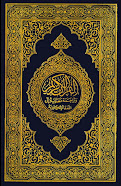The author of al-Khairat al-Hisan collected information from books of biographies and cited the names of the Sahaba whom it is reported that the Imam has transmitted ahadith from. He counted them as sixteen of the Sahaba. They are:
1. Anas ibn Malik
2. Abdullah ibn Anis al-Juhani
3. Abdullah ibn al-Harith ibn Juz’ al-Zabidi
4. Jabir ibn Abdullah
5. Abdullah ibn Abi Awfa
6. Wa’ila ibn al-Asqa`
7. Ma`qal ibn Yasar
8. Abu Tufail `Amir ibn Wa’ila
9. `A’isha bint Hajrad
10. Sahl ibn Sa`d
11. al-Tha’ib ibn Khallad ibn Suwaid
12. al-Tha’ib ibn Yazid ibn Sa`id
13. Abdullah ibn Samra
14. Mahmud ibn al-Rabi`
15. Abdullah ibn Ja`far
16. Abu Umama
Many disagreements exist regarding his reporting of Ahadith from some of these Sahaba. His reporting from Anas is supported by most of the biographers. The following are some of the Ahadith believed to be reported by the Imam directly from the Sahaba. Many biographers list them in their books:
First Hadith:
"Seeking of knowledge is an obligation on each and every Muslim." Reported by Abu Hanifa upon the authority of Anas ibn Malik. Many books of biography mention two chains of transmition for this Hadith.
Arabic transliteration: ("Talabu al-`ilmi fariDaatun `ala kulli muslim")
Second Hadith:
Abu Hanifa reported upon the authority of Jabir ibn Abdullah, said, "A man from the Ansar came to the Prophet Muhammad (saw) and said, ‘O Messenger of Allah! I never was gifted a son and a son was never born to me.’ So he (saw) said, ‘And where are you from the abundance of zikr and istighfar? Allah provides, by them, the children." He said, "So, the man used to increase his charity and his asking for forgiveness." Then Jabir, said "nine sons were born to him."
Some argued, though, that Jabir died in the year 79 A.H. while Abu Hanifa was born, most probably, in the year 80 A.H., so how can this report be true?
Arabic transliteration: ("Ja’a rajulun min al-anSar ila al-nabi – Salla allahu `alaihi wa sallam – fa qala lahu, ‘ya rasulallahi ma ruziqtu waladan qaTT wa la wulida li,’ faqala, ‘wa aina anta min kathrat al-istighfar wa al-Sadaqa, yarzuqu Allahu biha al-walad.’ Qal, "fa kana al-Rajul yukthiru min al-Sadaqa wa al-istighfar." Wa qala jabir – radiya allahu `anh – "fa wulida lahu tis`atun mina al-dhukur").
Third Hadith:
The Greatest Imam said, "I heard Abdullah ibn Juz’ al-Zabidi, the companion of the Prophet (saw), saying, "Whoever learned the knowledge of religion, Allah will protect him from worries and will provide him with sustenance from where he does not expect."
Arabic transliteration: ("Man tafaqqaha fi al-din kafahu Allahu hammahu wa razaqahu min Haythu la yaHtasib").
Fourth Hadith:
Reported from Abu Hanifa, said, "I heard Abdullah ibn Abi Awfa saing, "I heard the Prophet (saw) saying, "Whoever built a mosque, even if it be like a nest of a sand-grouse, Allah will build him a house in Paradise."
Arabic transliteration: ("Man bana lillahi baitan wa law ka mafHaSi qaTa, bana Allahu lahu baitan fi al-janna").
Fifth Hadith:
Reported from Abu Hanifa, said, "I was born in the year eighty, and Abdullah ibn Anis came to Kufa in the year ninety-four, and I heard from him while I was fourteen years old. I heard him saying, ‘Your loving the thing causes blindness and deafness.’"
Arabic transliteration: ("Wulidtu sanata thamanin, wa qadima Abdullah ibn Anis al-Kufa sanata arba`in wa tis`in, wa sami`tu minhu wa ana ibnu arba`a `ashrata sana. Sami`tuhu yaqul, ‘Hubbuka al-shay’a yu`mi wa yuSimm’").
Sixth Hadith:
Reported by Abu Hanifa, said I heard Wa’ila ibn al-Asqa` saying, "I heard the Messenger of Allah (saw) saying, ‘Do not display your rejoicing at your brother [‘s misfortune], so that Allah might remedy him and inflict it upon you.’"
Arabic transliteration: ("La tuZhiranna shamatataka li akhika fa yu`afiahu Allahu wa yabtalika").
Seventh Hadith:
Reported from Abu Hanifa, said, "Wa’ila ibn al-Asqa` told me, from the Messenger of Allah (saw), said, ‘Leave what causes you doubt and head towards what does not cause you doubt.’"
Arabic transliteration: ("Da` ma yuribuk ila ma la uribuk").
[al-Manaqib, al-Muwaffaq al-Makki, Vol. 1, 27; al-Manaqib, al-Kurdari, Vol. 1, 5]
And from what is agreed upon among many of the authors is that the Imam saw Anas ibn Malik. [Even] al-Khatib al-Baghdadi, despite his advocacy of a negative image for the Imam, does support the fact of his seeing of Anas ibn Malik with his saying, "Abu Hanifa saw Anas ibn Malik and heard from `Ata’ ibn Abi Rabah" [Tarikh Baghdad, Vol. 13, 324].
Ibn `Abd al-Barr mentions in his Jami` Bayan al-`Ilm [Vol. 1, 35], after he mentioned, alongside its sanad, a piece of news which Imam Abu Hanifa heard from Abdullah ibn al-Harith ibn al-Juz’, the Sahabi, "Ibn Sa`d, author of al-Waqidi, mentioned that Abu Hanifa saw Anas ibn Malik and Abdullah ibn al-Harith ibn al-Juz’." Counting on this, Ibn al-Juz’ is considered to have died late, and in priority, that Abu Hanifa saw Abdullah ibn Abi Awfa since he was Kufi with regards to his residence and place of death.
Furthermore, Abu Nu`aim al-Asfahani mentioned among the Sahaba, whom Abu Hanifa saw, Anas, Abdullah ibn al-Harith, and Ibn Abi Awfa. The same is reported by Sibt ibn al-Jawzi upon the authority of Dhakir ibn Kamil from Abu `Ali al-Haddad from his book al-Intisar wa’l-Tarjih. This, considering the birth date of Abu Hanifa in the year 80 A.H., but if his birth date was in the year 61 A.H., or in the year 70 A.H., as in the reports of Ibn Zawad and Ibn Hayyan, the possibility of his seeing of the Sahaba would be bigger. Abu al-Qasim ibn Abi al-`Awam expanded on clarifying who was comtemporary of him relying on the first report in his book Fazail Abi Hanifa wa Ashabih (The Virtues of Abu Hanifa and His Followers).
Among what was altered by means of tampering in [the process of] copying what was mentioned is that Daraqutni was asked about Abu Hanifa’s hearing from Anas, is it considered correct? He said "la wa la ru’ytuh" (No, niether his seening). But the original statement is "la illa ru’yatuh" (No, except his seeing). As an evidence on this is what Suyuti mentioned in the beginning of his book Tabiyd al-Sahifa with his saying "Hamza al-Sahmi said, ‘I heard Daraqutni saying Abu Hanifa did not meet any of the Sahaba except that he saw Anas with his eyes but did not hear from him.’" And from the ones who professed his seeing Anas are: Ibn Sa`d, al-Daraqutni, Abu Nu`aim al-Asfahani, Ibn `Abd al-Barr, al-Khatib [al-Baghdadi], Ibn al-Jawzi, al-Sam`ani, `Abd al-Ghani al-Maqdisi, Sibt ibn al-Jawzi, Fazl Allah al-Turishty, Nawawi, Yafi`i, Dhahabi, Zain al-Din al-`Iraqi, al-Wali al-`Iraqi, Ibn al-Wazir, al-Badr al-`Ayni, Ibn Hajar [al-`Asqalani], Shihab al-Din al-Qastalani, Suyuti, and Ibn Hajar al-Makki, among others. [Ta’nib al-Khatib fi ma Saqahu fi al-Imam Abi Hanifa min al-Akadhib, Kawthari, 15].
-
References the Author Relied On:
1. al-Haytami, al-Khairat al-Hisan. For al-`Allama, Mufti al-Hijaz Ibn Hajar (d.943 A.H.).
2. Manaqib al-Imam Abi Hanifa. For Abu al-Mu’ayyid al-Muwaffaq al-Makki (d.568).
3. Manaqib Abi Hanifa. For Ibn al-Bazzaz al-Kurdari, author of Fatawi al-Bazzaziyya (d. 827).
4. al-Durr al-Munazzam fi Manaqib al-Imam al-A`zam: a manuscript kept in the library of al-Azhar al-Sharif (#238). For Noah Afandi (d. 1070, Cairo).
5. al-`Uqud al-Jiman fi Manaqib Abi Hanifa al-Nu`man: also a manuscript in al-Azhar. For al-Salih al-Dimashqi.
1. Anas ibn Malik
2. Abdullah ibn Anis al-Juhani
3. Abdullah ibn al-Harith ibn Juz’ al-Zabidi
4. Jabir ibn Abdullah
5. Abdullah ibn Abi Awfa
6. Wa’ila ibn al-Asqa`
7. Ma`qal ibn Yasar
8. Abu Tufail `Amir ibn Wa’ila
9. `A’isha bint Hajrad
10. Sahl ibn Sa`d
11. al-Tha’ib ibn Khallad ibn Suwaid
12. al-Tha’ib ibn Yazid ibn Sa`id
13. Abdullah ibn Samra
14. Mahmud ibn al-Rabi`
15. Abdullah ibn Ja`far
16. Abu Umama
Many disagreements exist regarding his reporting of Ahadith from some of these Sahaba. His reporting from Anas is supported by most of the biographers. The following are some of the Ahadith believed to be reported by the Imam directly from the Sahaba. Many biographers list them in their books:
First Hadith:
"Seeking of knowledge is an obligation on each and every Muslim." Reported by Abu Hanifa upon the authority of Anas ibn Malik. Many books of biography mention two chains of transmition for this Hadith.
Arabic transliteration: ("Talabu al-`ilmi fariDaatun `ala kulli muslim")
Second Hadith:
Abu Hanifa reported upon the authority of Jabir ibn Abdullah, said, "A man from the Ansar came to the Prophet Muhammad (saw) and said, ‘O Messenger of Allah! I never was gifted a son and a son was never born to me.’ So he (saw) said, ‘And where are you from the abundance of zikr and istighfar? Allah provides, by them, the children." He said, "So, the man used to increase his charity and his asking for forgiveness." Then Jabir, said "nine sons were born to him."
Some argued, though, that Jabir died in the year 79 A.H. while Abu Hanifa was born, most probably, in the year 80 A.H., so how can this report be true?
Arabic transliteration: ("Ja’a rajulun min al-anSar ila al-nabi – Salla allahu `alaihi wa sallam – fa qala lahu, ‘ya rasulallahi ma ruziqtu waladan qaTT wa la wulida li,’ faqala, ‘wa aina anta min kathrat al-istighfar wa al-Sadaqa, yarzuqu Allahu biha al-walad.’ Qal, "fa kana al-Rajul yukthiru min al-Sadaqa wa al-istighfar." Wa qala jabir – radiya allahu `anh – "fa wulida lahu tis`atun mina al-dhukur").
Third Hadith:
The Greatest Imam said, "I heard Abdullah ibn Juz’ al-Zabidi, the companion of the Prophet (saw), saying, "Whoever learned the knowledge of religion, Allah will protect him from worries and will provide him with sustenance from where he does not expect."
Arabic transliteration: ("Man tafaqqaha fi al-din kafahu Allahu hammahu wa razaqahu min Haythu la yaHtasib").
Fourth Hadith:
Reported from Abu Hanifa, said, "I heard Abdullah ibn Abi Awfa saing, "I heard the Prophet (saw) saying, "Whoever built a mosque, even if it be like a nest of a sand-grouse, Allah will build him a house in Paradise."
Arabic transliteration: ("Man bana lillahi baitan wa law ka mafHaSi qaTa, bana Allahu lahu baitan fi al-janna").
Fifth Hadith:
Reported from Abu Hanifa, said, "I was born in the year eighty, and Abdullah ibn Anis came to Kufa in the year ninety-four, and I heard from him while I was fourteen years old. I heard him saying, ‘Your loving the thing causes blindness and deafness.’"
Arabic transliteration: ("Wulidtu sanata thamanin, wa qadima Abdullah ibn Anis al-Kufa sanata arba`in wa tis`in, wa sami`tu minhu wa ana ibnu arba`a `ashrata sana. Sami`tuhu yaqul, ‘Hubbuka al-shay’a yu`mi wa yuSimm’").
Sixth Hadith:
Reported by Abu Hanifa, said I heard Wa’ila ibn al-Asqa` saying, "I heard the Messenger of Allah (saw) saying, ‘Do not display your rejoicing at your brother [‘s misfortune], so that Allah might remedy him and inflict it upon you.’"
Arabic transliteration: ("La tuZhiranna shamatataka li akhika fa yu`afiahu Allahu wa yabtalika").
Seventh Hadith:
Reported from Abu Hanifa, said, "Wa’ila ibn al-Asqa` told me, from the Messenger of Allah (saw), said, ‘Leave what causes you doubt and head towards what does not cause you doubt.’"
Arabic transliteration: ("Da` ma yuribuk ila ma la uribuk").
[al-Manaqib, al-Muwaffaq al-Makki, Vol. 1, 27; al-Manaqib, al-Kurdari, Vol. 1, 5]
And from what is agreed upon among many of the authors is that the Imam saw Anas ibn Malik. [Even] al-Khatib al-Baghdadi, despite his advocacy of a negative image for the Imam, does support the fact of his seeing of Anas ibn Malik with his saying, "Abu Hanifa saw Anas ibn Malik and heard from `Ata’ ibn Abi Rabah" [Tarikh Baghdad, Vol. 13, 324].
Ibn `Abd al-Barr mentions in his Jami` Bayan al-`Ilm [Vol. 1, 35], after he mentioned, alongside its sanad, a piece of news which Imam Abu Hanifa heard from Abdullah ibn al-Harith ibn al-Juz’, the Sahabi, "Ibn Sa`d, author of al-Waqidi, mentioned that Abu Hanifa saw Anas ibn Malik and Abdullah ibn al-Harith ibn al-Juz’." Counting on this, Ibn al-Juz’ is considered to have died late, and in priority, that Abu Hanifa saw Abdullah ibn Abi Awfa since he was Kufi with regards to his residence and place of death.
Furthermore, Abu Nu`aim al-Asfahani mentioned among the Sahaba, whom Abu Hanifa saw, Anas, Abdullah ibn al-Harith, and Ibn Abi Awfa. The same is reported by Sibt ibn al-Jawzi upon the authority of Dhakir ibn Kamil from Abu `Ali al-Haddad from his book al-Intisar wa’l-Tarjih. This, considering the birth date of Abu Hanifa in the year 80 A.H., but if his birth date was in the year 61 A.H., or in the year 70 A.H., as in the reports of Ibn Zawad and Ibn Hayyan, the possibility of his seeing of the Sahaba would be bigger. Abu al-Qasim ibn Abi al-`Awam expanded on clarifying who was comtemporary of him relying on the first report in his book Fazail Abi Hanifa wa Ashabih (The Virtues of Abu Hanifa and His Followers).
Among what was altered by means of tampering in [the process of] copying what was mentioned is that Daraqutni was asked about Abu Hanifa’s hearing from Anas, is it considered correct? He said "la wa la ru’ytuh" (No, niether his seening). But the original statement is "la illa ru’yatuh" (No, except his seeing). As an evidence on this is what Suyuti mentioned in the beginning of his book Tabiyd al-Sahifa with his saying "Hamza al-Sahmi said, ‘I heard Daraqutni saying Abu Hanifa did not meet any of the Sahaba except that he saw Anas with his eyes but did not hear from him.’" And from the ones who professed his seeing Anas are: Ibn Sa`d, al-Daraqutni, Abu Nu`aim al-Asfahani, Ibn `Abd al-Barr, al-Khatib [al-Baghdadi], Ibn al-Jawzi, al-Sam`ani, `Abd al-Ghani al-Maqdisi, Sibt ibn al-Jawzi, Fazl Allah al-Turishty, Nawawi, Yafi`i, Dhahabi, Zain al-Din al-`Iraqi, al-Wali al-`Iraqi, Ibn al-Wazir, al-Badr al-`Ayni, Ibn Hajar [al-`Asqalani], Shihab al-Din al-Qastalani, Suyuti, and Ibn Hajar al-Makki, among others. [Ta’nib al-Khatib fi ma Saqahu fi al-Imam Abi Hanifa min al-Akadhib, Kawthari, 15].
-
References the Author Relied On:
1. al-Haytami, al-Khairat al-Hisan. For al-`Allama, Mufti al-Hijaz Ibn Hajar (d.943 A.H.).
2. Manaqib al-Imam Abi Hanifa. For Abu al-Mu’ayyid al-Muwaffaq al-Makki (d.568).
3. Manaqib Abi Hanifa. For Ibn al-Bazzaz al-Kurdari, author of Fatawi al-Bazzaziyya (d. 827).
4. al-Durr al-Munazzam fi Manaqib al-Imam al-A`zam: a manuscript kept in the library of al-Azhar al-Sharif (#238). For Noah Afandi (d. 1070, Cairo).
5. al-`Uqud al-Jiman fi Manaqib Abi Hanifa al-Nu`man: also a manuscript in al-Azhar. For al-Salih al-Dimashqi.










